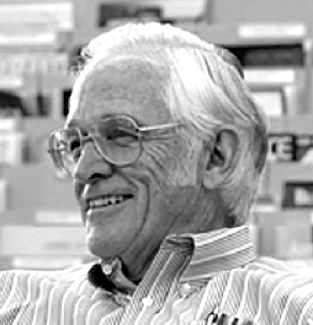
By George B. Kauffman
Make the Break (If You Can) by Dr. Reginald J. Exton (Author), Roy Speckhardt (Editor), Humanist Press, 1777 T St. NW, Washington, D.C., 2012, $9.99. ISBN 9780931779268.
NASA scientist Reginald J. Exton succinctly shares the evidence pointing to the human origin of religions in this book. He presents a representative list of events, scientific observations and religious developments leading the reader to realize that there is voluminous evidence that humanity itself created gods and religions to shield itself from the unknown.
The book is in magazine format, which makes its 64 full-color pages, including charts, pictures and graphs, easy to read and understand. The e-book version contains links to additional online content, including a forum in which readers can communicate with each other.
Exton discusses why religious beliefs are so strongly entrenched in people’s thinking and why they still maintain these beliefs today. Exton’s book includes some of the worldwide conflicts that have arisen from religion, an outline of the astrophysical projection of the ultimate fate of our universe and an alternative to god-based religions that captures the best parts of the religious rules and philosophies now practiced.
“My sincere hope is that the book will help to relieve people of their historical guilt and clarify the individual rights and responsibilities of all human beings,” Exton said. “These hopes are particularly meaningful at the beginning of the 21st century as two major religions again conduct crusades against one another, and the political arm of religion in the U.S. strengthens itself to secure by ‘democratic’ means what it cannot obtain by argument.”
Outlining the human origin of religions, Make the Break (If You Can) begins with a brief synopsis of the major developments in the formation of our universe; a description of more recent events in the development of civilization, including the period of religious fervor; and the evolutionary process leading to modern man. Exton further discusses why religious beliefs are so strongly entrenched in people’s thinking and why many maintain these beliefs today.
Dr Exton’s scientific career began in 1954 at the University of Richmond, where he majored in physics, graduating with a B.S. in 1958. He completed is education in physics with an M.S. and a Ph.D. at West Virginia University. For the past 50 years, he has been a researcher with NASA at Langley Research Center. During his interesting career, he has worked on reentry physics, atmospheric and oceanographic pollution, laser spectroscopy, hypersonic combustion, aerodynamics and plasma physics.
*****
George B. Kauffman, Ph.D., chemistry professor emeritus at Fresno State and a Guggenheim Fellow, is a recipient of the American Chemical Society’s George C. Pimentel Award in Chemical Education, the Helen M. Free Award for Public Outreach and the Award for Research at an Undergraduate Institution, and numerous domestic and international honors. In 2002 and 2011, he was appointed a Fellow of the American Association for the Advancement of Science and the American Chemical Society, respectively.
